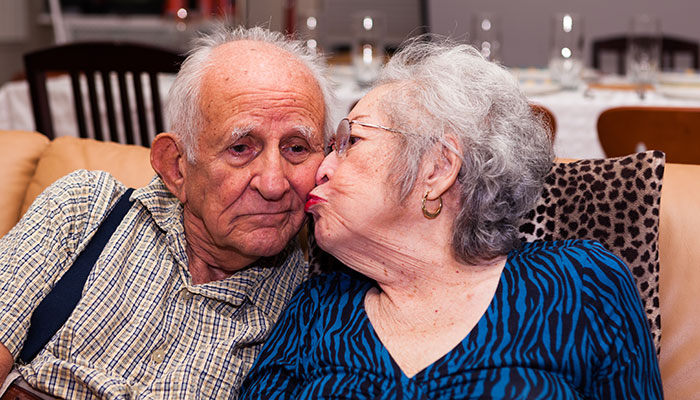- Posted by:
- Category: Blog

Grief is the expected response to a loved one’s death. We expect to mourn, and we receive comfort from others. But in the context of a dementia, such as Alzheimer’s disease, the loss is not as clear cut. Your partner is “here but not here.” And you do not receive the same support or acknowledgment for the very real losses of
- the relationship as you’ve known it
- shared conversation and pastimes
- predictability in your everyday life
- options for your future, and theirs
For partners of persons with dementia, these types of losses are felt daily, like little deaths. They generate feelings of grief, but there is no closure for you and no public validation. Grief of this nature is confusing. As such, it is sometimes referred to as “ambiguous loss.”
Try these strategies for living with ambiguity and grief:
- Acknowledge and accept. Many people seek relief from ambiguity through an all-or-nothing interpretation. Learning to acknowledge and accept the paradox of good and bad together reduces the stress of ambiguous loss. It requires teaching yourself to hold on and let go at the same time. Try practicing “both/and” thinking. For instance, “I am both sad at [partner’s] decline, and it’s a relief to realize I don’t have to worry about their driving anymore.”
- Find support. Get validation from others who understand the stress of ambiguous loss. Check out the online support groups at the Well Spouse Association. Or consider joining a dementia caregiver support group that is local and meets in person, or one that meets by video chat.
- Engage certainty. To counterbalance the lack of predictability in your life, do things that give you the satisfying feeling of accomplishment. This might be taking a class, creating a scrapbook, or learning a new skill.
Is ambiguous loss part of your picture?
We at Parent Care Management Services frequently work with spouses who say that one of the most difficult parts of caregiving is feeling like their partner is gone, but not being able to actively mourn or live as if they were in fact a widow. As the Inland Empire experts in family caregiving, we understand! Give us a call and let us help you through this confusing time: (909) 864-2085.

